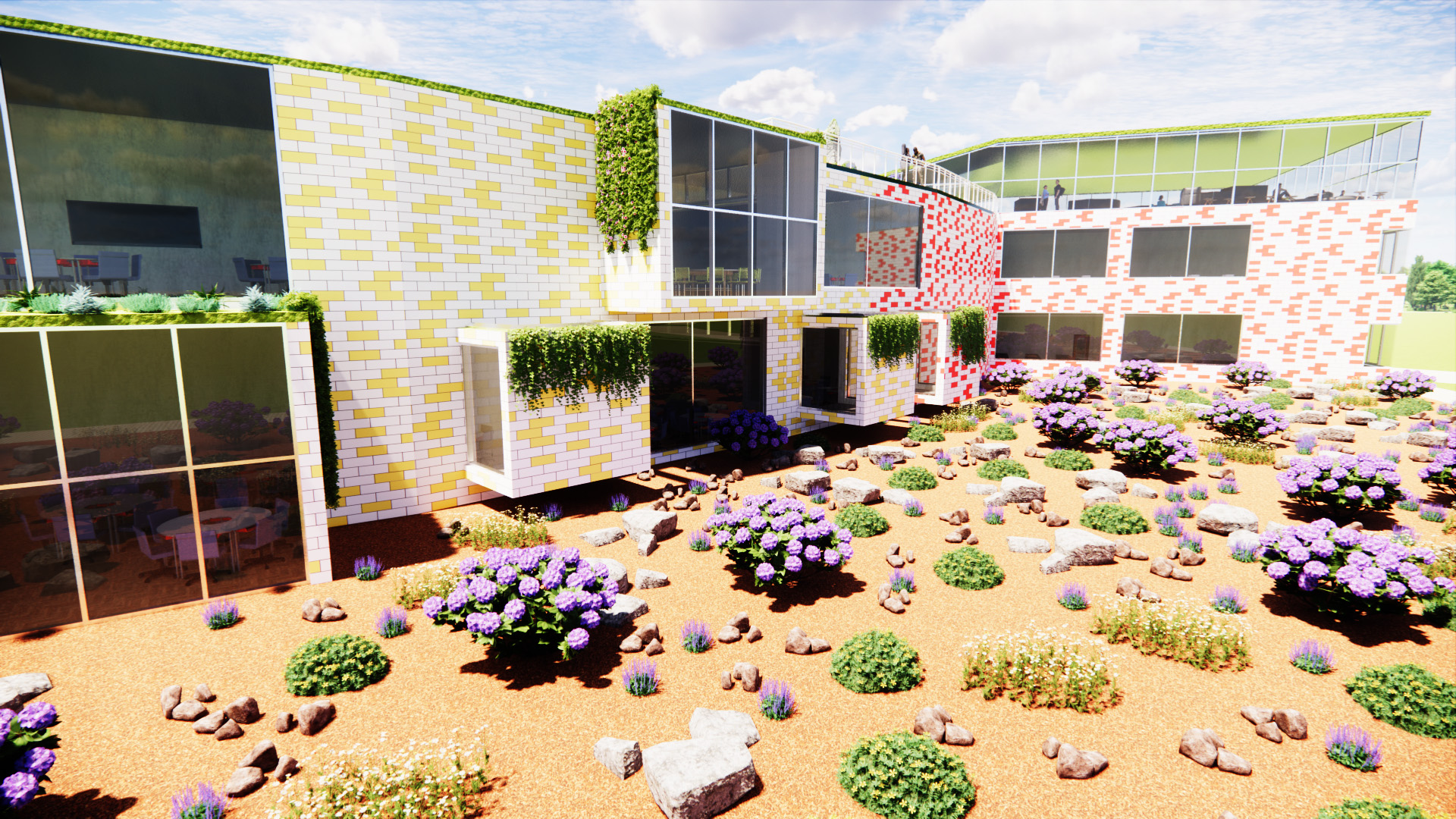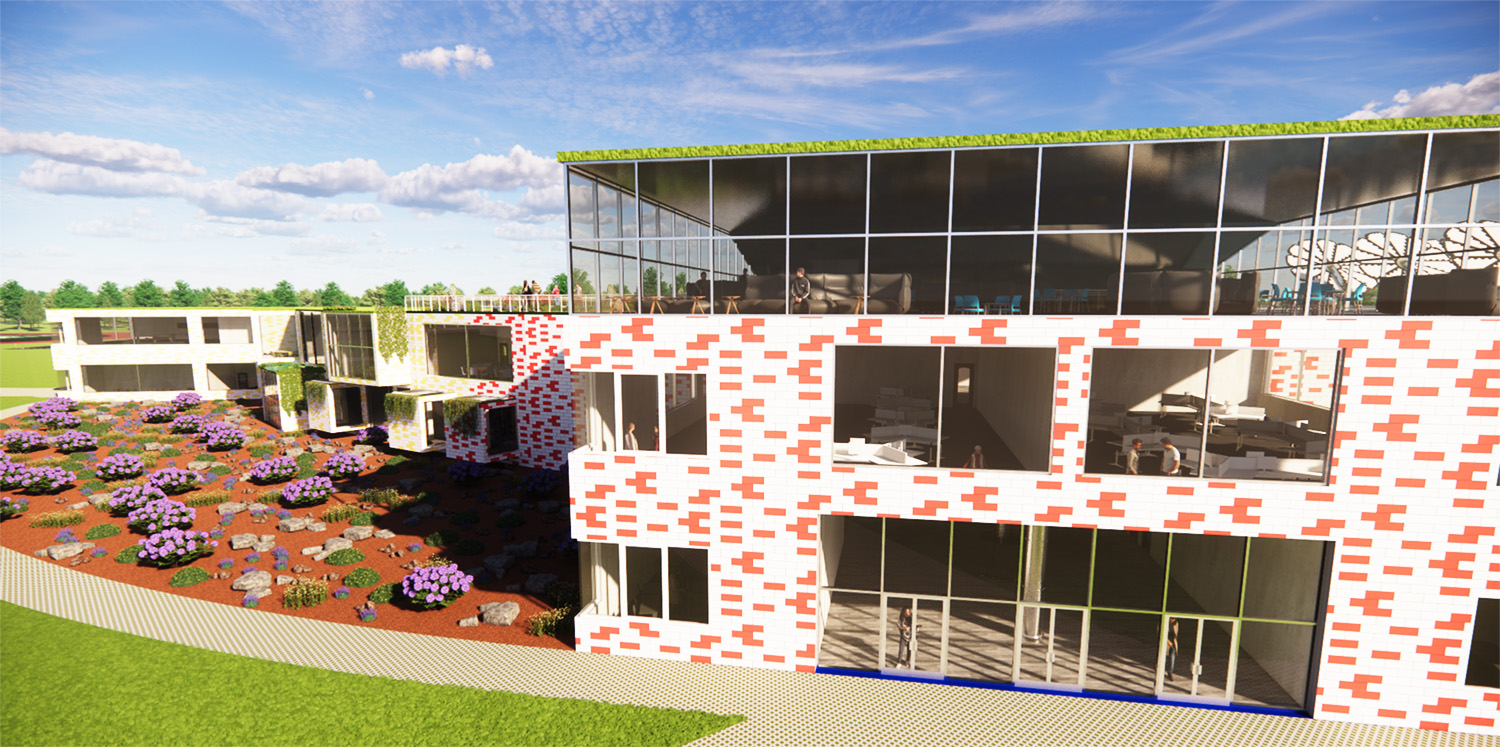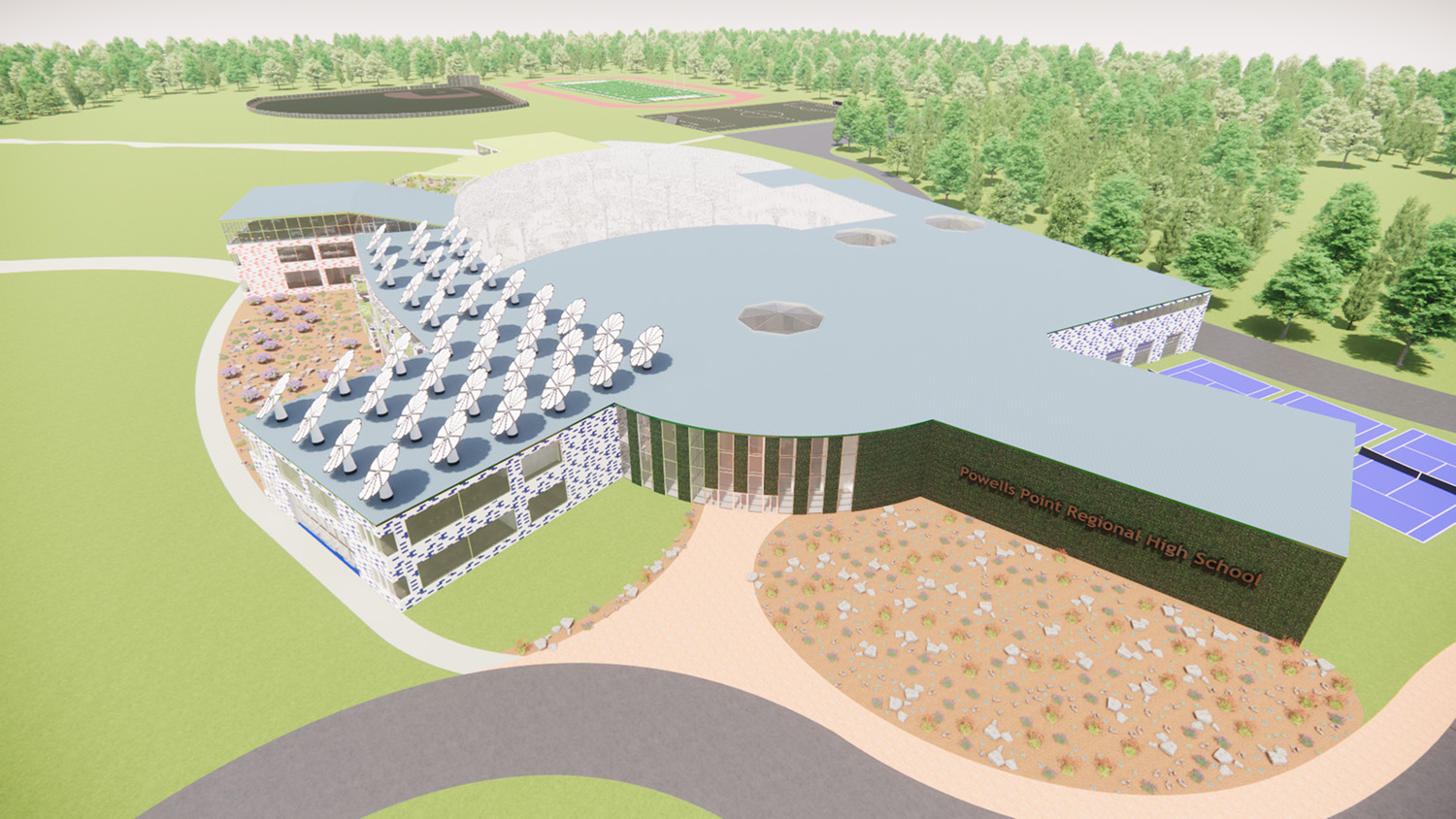Artist Biography
Thomas Hitchcock is a senior studying architectural studies at Endicott College. Having no initial experience in design, Tom has proven to be a fast learner and familiarize himself with many different techniques of design. Interning at industrial engineering and school design firms, he has become well-versed in large commercial design and has mainly focused on public school design for the past two years. Being involved in real-world projects, he realized that the way architects and engineers go about school design was in need of a drastic change that was student-focused and not cost-focused. Tom has been surrounded by design from a young age, since his father is a sales rep for building envelope and roofing product companies. Seeing shop drawings and floor plans inspired him to pursue a degree in design, and he will work with his father’s company after graduation.
Tom’s life outside of the classroom includes spending time with his close friends and family, who have helped him grow and succeed over the last four years. Although this past semester has been filled with many hours of thesis work, he still makes time to see everyone and decompress. He loves to watch sports, especially the Celtics and the Red Sox, and if you ask him to visit Fenway, he will never say no. One of his favorite things to do is reminisce about his semester abroad in Florence, Italy, and talk about the places he and his friends visited and all of the new design techniques and styles they learned. He wants to thank his girlfriend Danielle and his friends Ko Harmes and Ceejay Laquerre for pushing his designs, keeping him sane during this process.
Thesis Abstract
This thesis explores how mindful architecture can transform the educational experience by improving both academic success and students’ social-emotional well-being. Traditional school designs in the United States are often outdated, uninspiring, and modeled more like prisons than places of learning, contributing to student disengagement and underperformance. This research proposes a new model for educational design that draws from successful international examples and alternative schools like Montessori, charter, and open schools. Key architectural features such as adaptive learning spaces, smaller class sizes, outdoor classrooms, and collaborative hubs are shown to better support diverse learning styles, personalized instruction, and emotional development.
The research also highlights the importance of integrating technology to track student progress and provide inclusive, individualized learning. Psychological insights emphasize the need for learning environments that nurture resilience, belonging, and motivation. Cost-effective strategies, such as modular furniture and outdoor spaces, demonstrate how schools can be reimagined even within budget constraints. Ultimately, this thesis advocates for a student-centered design approach that bridges education, psychology, and architecture to create schools that inspire and support every learner.



